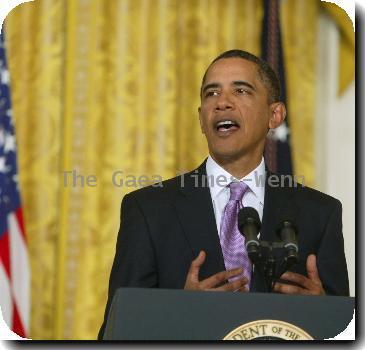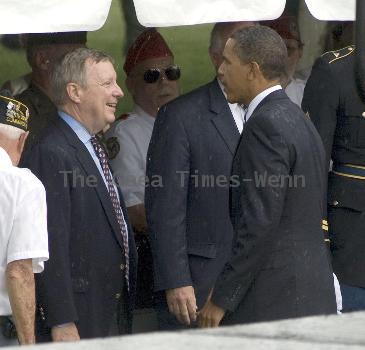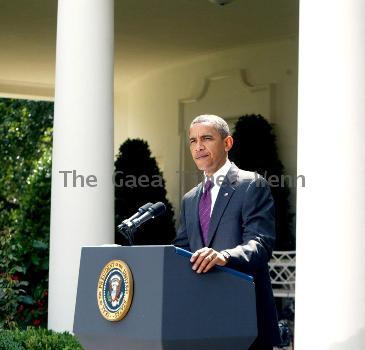NY mosque imam: Extremism common threat to West and Muslim world
By Hasan Jamali, APFriday, August 20, 2010
NY mosque imam: Extremism is global threat
MANAMA, Bahrain — The imam leading plans for an Islamic center near the Manhattan site of the Sept. 11 attacks said Friday he hopes to draw attention during his trip in the Middle East to the common challenges to battle radical religious beliefs.
Imam Feisal Abdul Rauf, who is on the first leg of a 15-day Mideast tour funded by the U.S. State Department, refused to discuss the political firestorm over the plans for an Islamic cultural center about two blocks from the World Trade Center towers.
But in New York, Rauf’s wife and a co-leader of the proposed project known as Park51 said Friday that organizers are sticking with the plan despite protests. “Dropping the plan is definitely not an option at all,” said Daisy Khan, head of the American Society for Muslim Advancement.
Foes of the project say it is insensitive and disrespectful to the victims of 9/11 and their families. The debate has become politicized ahead of November’s midterm congressional elections.
Rauf preferred to focus on shared concerns while in the Mideast. Speaking after leading Friday prayers at a neighborhood mosque outside Bahrain’s capital Manama, he said radical religious views pose a security threat in both the West and the Muslim world.
“This issue of extremism is something that has been a national security issue — not only for the United States but also for many countries and nations in the Muslim world,” Rauf said. “This is why this particular trip has a great importance because all countries in the Muslim world — as well as the Western world — are facing this … major security challenge.”
Details of the imam’s visit to the region have been closely guarded — possibly in reaction to the rancor in the United States over the plans by his organization, The Cordoba Initiative, for the Manhattan center.
President Barack Obama has said he believes Muslims have the right to build an Islamic center in New York as a matter of religious freedom, though he’s also said he won’t take a position on whether they should actually build it. New York Mayor Michael Bloomberg came out in support of the mosque, calling it a test of the separation of church and state.
Khan, Rauf’s wife, said the organizers were not considering scaling back the project or changing locations, but are consulting more closely with American Muslim leaders because they realize the uproar surrounding the center is affecting Muslims nationwide.
“We know that we have the right to do this, but what is right for the larger community, or the larger good of the larger Muslim community?” she told The Associated Press in a brief phone interview.
New York Gov. David Paterson suggested last week that leaders of the project might want to consider relocating out of sensitivity to families of those killed on Sept. 11.
He said he had the support of Islamic clergy, New York Archbishop Timothy Dolan and former Mayor Rudy Giuliani, who led the city through the attacks and their aftermath. The governor and state officials won’t say what other site would be suitable for the center or where the state owns nearby land.
This week, Paterson said he had hoped to meet with developers in a couple of days to talk about the concerns of those still hurt and angry over the Sept. 11 attacks. He told WNYC Radio’s “The Take Away” on Friday that he’s still seeking a meeting, but that the group postponed a Monday meeting because of Rauf’s travels.
The Cordoba Initiative developers said Friday they never planned to meet with Paterson over his offer to help find an alternate site. They gave no reason in a brief written response to a request for comment from The AP. Paterson didn’t immediately respond to a request for comment on the statement.
Muslims have been holding prayer services since last year in the building that the new project will replace.
In Bahrain, Rauf also said he has been working on a way to “Americanize Islam.” While he did not elaborate on what an American version of Islam might look like, he did note that different interpretations of the faith have emerged over the religion’s 1,400-year existence.
“The same principles and rituals were everywhere, but what happened in different regions was there were different interpretations,” he said. “So we recognize that our heritage allows for re-expressing the internal principles of our religion in different cultural times and places.”
This is Rauf’s fourth U.S-government sponsored trip to the region, according to the State Department. He traveled twice to the Mideast in 2007 during the Bush administration and once earlier this year. Rauf will also visit Qatar and the United Arab Emirates during this trip to talk about Muslim life in America.
____
Associated Press Writers Rachel Zoll in New York and Michael Gormley in Albany, N.Y., contributed to this report.
Tags: Bahrain, Barack Obama, Manama, Middle East, New York, New York City, North America, Radicalism, United Arab Emirates, United States







